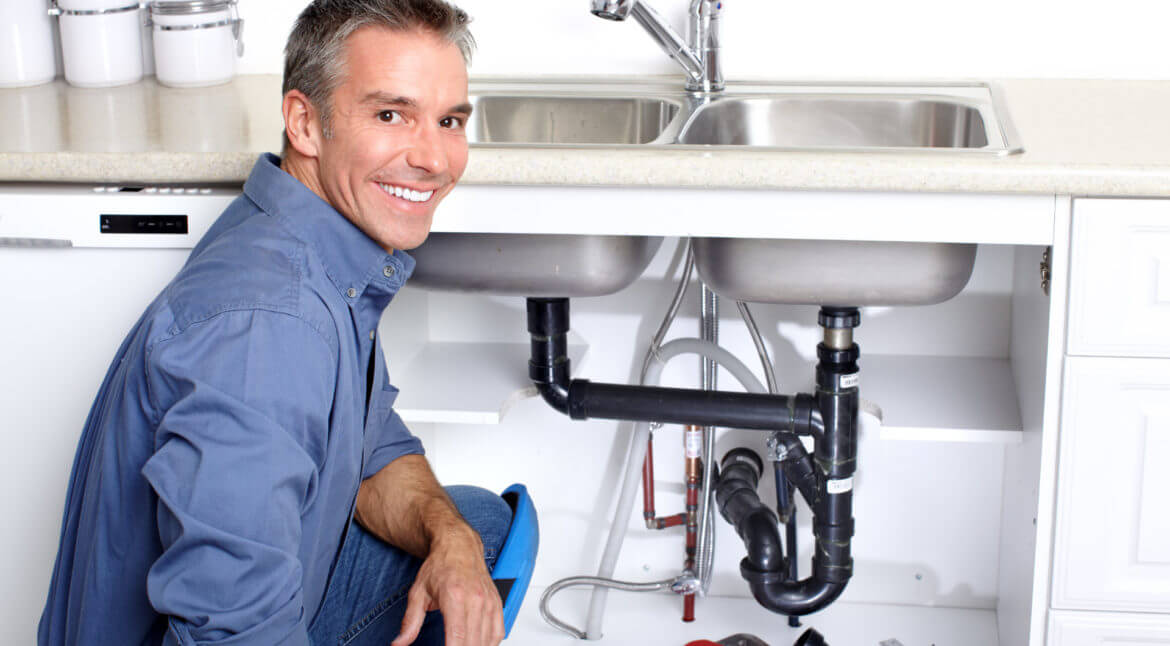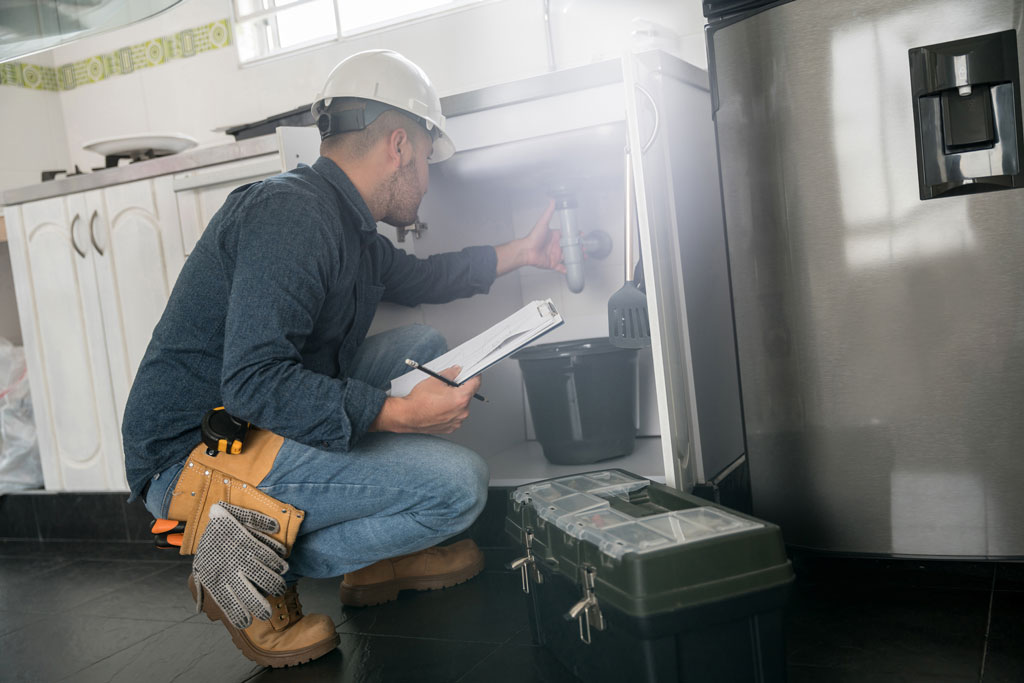How do you feel with regards to What to Do During a Plumbing Emergency?

Pipes emergencies can strike at any time, causing anxiety and possible damages to your home. Whether it's a burst pipe, a stopped up drainpipe, or a leaky faucet, knowing exactly how to take care of the scenario until a professional plumbing technician gets here can conserve you from more complications. This article provides important emergency plumbing suggestions to assist you alleviate damages and reclaim control throughout a plumbing crisis.
Turn Off the Supply Of Water
The primary step in any type of pipes emergency situation is to shut down the water. For local concerns, such as a dripping tap or commode, shut off the valve near the fixture. In the case of a major leakage or ruptured pipe, locate your home's main water shut-off shutoff and transform it off instantly. Recognizing the location of these shutoffs beforehand can conserve valuable time throughout an emergency.
Address Little Leaks with Momentary Solutions
Small leakages can swiftly end up being significant troubles if left untreated. Utilize these short-term solutions up until professional assistance arrives:
While these solutions aren't permanent, they can assist lessen water loss and damages.
Unclog Drains Safely
A stopped up drainpipe can be a frustrating and messy problem. Right here's just how to tackle it:
If these techniques don't work, avoid using too much pressure, as it might aggravate the obstruction.
Manage Overflowing Toilets
An overflowing commode can trigger instant mayhem. Right here's what you ought to do:
Shut Off Your Water Heater
In particular emergency situations, such as a ruptured pipe, it's a good idea to turn off your hot water heater. This protects against overheating or damage to the unit when water stops streaming. Switch off the power supply to the hot water heater (electrical or gas) and allow it cool down to avoid potential risks.
Briefly Quit a Ruptured Pipeline
A ruptured pipeline can bring about substantial water damages in mins. To mitigate the issue:
Call a specialist plumber right away to attend to the trouble completely.
Take Care Of Frozen Pipes Carefully
In cooler environments, icy pipelines are a common emergency. If you suspect a frozen pipe:
Protect against More Damages
Taking fast action to decrease damages can conserve you money and time over time. Here's how:
. Have an Emergency Plumbing Kit
Prepare a basic pipes emergency situation package to take care of small problems successfully. Your kit ought to include:
Having these tools accessible can make a substantial distinction in your ability to take care of emergency situations.
Know When to Call a Professional.
While quick fixes can help momentarily, specific plumbing concerns need prompt expert attention. Call a plumbing professional if:.
Immediately getting in touch with a specialist makes sure the issue is resolved appropriately and avoids further issues.
Final thought.
Pipes emergencies can be overwhelming, however with the best expertise and tools, you can take care of the circumstance effectively till help gets here. By shutting off the water, attending to small leaks, and using momentary fixes, you can lessen damages and keep your home safe. Bear in mind, these suggestions are short-lived services; constantly speak with a qualified plumbing to take care of the source of the trouble. Preparation and fast reasoning are your best allies in any type of plumbing emergency.
Expert Tips for Emergency Plumbing Repairs
Plumbing emergencies can be incredibly stressful and inconvenient. Whether it’s a burst pipe, a clogged drain, or a leaky faucet, these common plumbing emergencies need immediate attention to prevent further damage to your home. But before you panic, it’s important to understand the basics of plumbing repairs and the steps you can take to address these emergencies. In this article, we will share some expert tips to help you navigate through these situations and minimize potential water damage.
Identifying Common Plumbing Emergencies
Leaky pipes and faucets Clogged drains and toilets Burst pipes Low water pressure Water heater problems Essential Tools for Plumbing Repairs
Plunger: Useful for unclogging toilets and drains Adjustable wrench: Needed for tightening or loosening nuts and bolts Pipe wrench: Ideal for gripping and turning pipes Tape measure: Necessary for accurate pipe measurements Plumber’s tape: Helps create watertight seals Understanding Emergency Plumbing Services
Emergency plumbing services are designed to provide immediate assistance for unexpected plumbing issues that can cause significant damage to your home, business, or health. These services are typically available 24/7 and are staffed by experienced plumbers who can quickly diagnose and repair a wide range of plumbing problems.
When a plumbing emergency strikes, time is of the essence. Whether it’s a burst pipe flooding your basement or a gas leak posing a serious risk, emergency plumbing services ensure that help is just a phone call away. These professionals are equipped with the tools and expertise to handle any situation, minimizing damage and restoring your plumbing system to proper working order.
What Constitutes a Plumbing Emergency?
Burst pipes or water supply lines: These can cause extensive water damage and need immediate repair to prevent flooding. Gas leaks or suspected gas leaks: Gas leaks are extremely dangerous and require prompt attention to avoid potential explosions or health hazards. Sewer backups or overflows: These can lead to unsanitary conditions and significant property damage. Clogged drains or toilets causing water to overflow: Overflowing water can damage floors, walls, and other structures. Leaks or water damage causing structural damage: Persistent leaks can weaken the structural integrity of your home or business. No hot water or heating: A lack of hot water can be more than an inconvenience, especially in colder months. Common Causes of Plumbing Emergencies
Aging or corroded pipes: Over time, pipes can deteriorate, leading to leaks or bursts. Improperly installed or maintained plumbing fixtures: Faulty installations or lack of maintenance can result in unexpected failures. Tree roots or other debris infiltrating your sewer line: Roots can grow into pipes, causing blockages and backups. Frozen pipes or water supply lines: In colder climates, pipes can freeze and burst, leading to significant water damage. High water pressure or sudden changes in water pressure: Excessive pressure can strain pipes and fixtures, causing them to fail. Natural disasters such as floods or earthquakes: These events can disrupt your plumbing system and cause severe damage. Steps to Minimize Water Damage
Locate the water shut-off valve: Knowing where the valve is can help you quickly cut off the water supply to the affected area. Turn off the water heater: If there’s a risk of water coming into contact with the heating element, make sure to turn off the water heater to avoid potential accidents. Open faucets and drain pipes: By opening faucets and drain pipes, you can relieve pressure and empty any standing water. Collect and contain water: Use towels, buckets, or bins to collect water and prevent it from spreading to other areas of your home. https://leecountyplumbingandwellservice.com/expert-tips-for-emergency-plumbing-repairs/

I found that blog post on What to Do While Waiting for an Emergency Plumber when doing a lookup on the search engines. I beg you take a moment to promote this content if you enjoyed reading it. Thank you for going through it.
Schedule Appointment